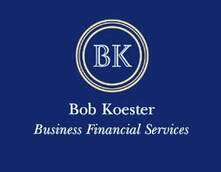|
Why did we start, buy, or otherwise go into business. We all know there are many reasons. A personal interest that grew beyond an avocation phase is one reason. Corporate downsizing and the need to generate living cash is another. Maybe it was involvement in a family business, which became ownership and management through the death or disability of the controlling shareholder. Perhaps it was simply an idea for a "better mousetrap". All these reasons are possible and the list could easily be made much longer.
Regardless of the reason(s) we started up, it's what we do day-to-day that determines the ultimate success or failure of our enterprises. We have all heard of (and presumably done something about) the importance of hiring good accountants and lawyers. These professionals keep us out of trouble by helping us understand and comply with an array of laws, guidelines, position papers, legislative issues etc. They help with taxes, codifying and arranging year end matters and facilitate trade-name registration, copyrights, patents, succession and estate planning, and even the occasional lawsuit. They don't necessarily keep us out of trouble with ourselves. Over the last several months of writing these columns I've talked repeatedly about the importance of cash, particularly the net cash operating position. To briefly reiterate, it's cash that pays employees and associates. It's cash that maximizes the ability to buy goods and services at prices that allow a good competitive position. It's cash that allows the taking of discounts thereby contributing to both above and below the line efficiencies. And, it's cash that is used for discretionary spending. Discretionary spending is the spending we choose to do, rather than the spending we are obligated to do. Since every business has certain expenses it is obligated or required to pay, it stands to reason that discretionary spending comes from non-obligated funds. Pretty simple? Not really. Let's start by looking at some examples of what is discretionary and what isn't. Payments for trucks are contractual obligations. Increasing the amount of the payments by unjustifiable upgrades or options is discretionary spending. Flying on business trips is probably essential for the most part. The best fare is the requirement; the most convenient time (if it costs significantly more) is discretionary spending. Employee health insurance may be required to attract and retain quality employees. But, does the entire premium have to be absorbed by the employer? If not and the employer does anyway, that's discretionary spending. You could also think of it as "lifestyle" spending. Any or all of the examples and many more are possible, perhaps likely, and not necessarily wrong. The test of discretionary spending comes from an analysis of the source of the funds in light of an owner's perception of the business' future needs. Businesses have lifestyles just as individuals have lifestyles. Lifestyles require cash. The key question is which source of cash does a business choose to support its lifestyle? Cash comes from four sources:
Successful operations These funds are generated by well-managed businesses that have developed recurring sustainable sources of revenue. Cash from successful operations can be reasonably well projected based on past performance and realistic expectations. Since the source can be predicted so can the uses be predicted. Capital acquisition and other cash-use budgets can be drawn and provided for. The REAL discretionary income comes below those budget lines. Conversion of assets It may make perfectly good sense to sell off surplus inventories, machinery and equipment, or old no longer needed personal property. But remember, once it's sold its gone. The cash from the sale may be used to bolster current operations or help support discretionary spending. However, selling perfectly useable property to support discretionary spending is WRONG, and bound to lead to trouble. Contributed capital (inside or outside investment) Businesses sometimes use equity investment to support current operations and discretionary spending. That may be okay for an early phase start-up. But developing a lifestyle from the abundance of cash an equity investment creates can lead to DISASTER when the business takes longer to generate positive net cash operating income than projected. Borrowing Purpose credit, real estate loans, and working capital financing all have their place in the contemporary business world. The big question is why is the borrowing needed. Is the machine too expensive to buy outright, but easily fits into the required spending monthly allocation? Can the building be bought for less than rent and there are sufficient long-term benefits to justify the purchase? Do the payments easily fit into the required spending monthly allocation? Does the availability of working capital financing allow better purchasing, discount taking, or other cash enhancing features? OR Has lifestyle spending become standard operating procedure? Is the lifestyle spending being supported by borrowing of some sort rather than successful operations? If yes is the answer to either or both of those questions, a business runs significant risk of not being able too properly handle emergencies or other unexpected events. In short, financing a lifestyle can be risky business. Mediation Services would welcome the opportunity to discuss this or any other cash related matter concerning your business. Please feel free to contact us. We will reply promptly.
0 Comments
|
AuthorBob Koester shares his Archives
August 2021
Categories |
 RSS Feed
RSS Feed

